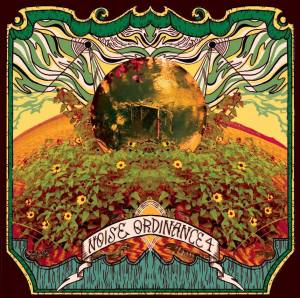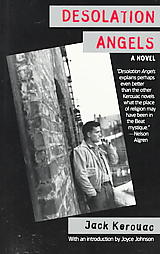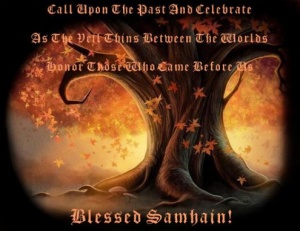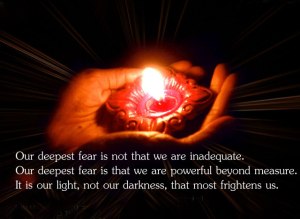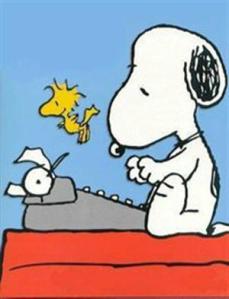I recently read that the creator of ADD revealed it to be a fictitious disease on his deathbed, and like many things on the Internet, it didn’t completely surprise me and I can’t really tell if it’s true or not. In America, we have a penchant to find a classification for everything. Because we live such busy and stressful lives, we have little time to invest in truly seeking to understand life’s little idiosyncrasies, opting instead to merely simplify something as a diagnosis, category, or stereotype so that we may get back to work and try to squeak in some time for pleasure.
The unfortunate side effect of our mad dashes for understanding are the limitations our so-called understanding puts on us. When people exhibit certain behaviors, it is seemingly much more efficient to give them a diagnosis based upon their similarities to others who have exhibited said behavior, and utilize conditioning, pharmaceuticals, psychotherapy, or other behavioral modification techniques to make those people act the way we think people should act in order to be productive members of industrial society. The problem is that much of the behavior is in response to the unhealthy and unnatural lifestyles that “normal” people have adopted in order to enable industrial society.
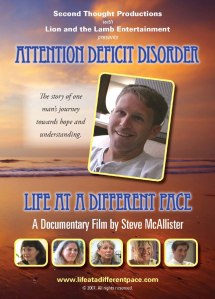 When I first came across the ADD explanation for why I acted the way that I acted, there was a part of me that felt somewhat damaged for having this neurological disorder, yet part of me that felt somewhat vindicated. Although my culture deemed me to be disordered, it was a condition that affected a growing percentage of the population, and for me, there was comfort knowing that I wasn’t all alone in my struggle against my mind. That there were so many people who operated like me, and that so many people who were studying “my kind” in order to help us gain a greater understanding of the anomaly was very empowering.
When I first came across the ADD explanation for why I acted the way that I acted, there was a part of me that felt somewhat damaged for having this neurological disorder, yet part of me that felt somewhat vindicated. Although my culture deemed me to be disordered, it was a condition that affected a growing percentage of the population, and for me, there was comfort knowing that I wasn’t all alone in my struggle against my mind. That there were so many people who operated like me, and that so many people who were studying “my kind” in order to help us gain a greater understanding of the anomaly was very empowering.
I read a great deal about Attention Deficit Hyperactivity Disorder (although I was labeled as without the hyperactivity component), and soon found a writer who saw strength in the disorder instead of merely disease. Thom Hartmann had come up with this “Hunter in a Farmer’s World” theory, built upon the premise that humanity began as a hunting society, and though we evolved into a farming society (which has morphed into an industrial civilization) those afflicted with ADD are genetic remnants of that hunting society. Hunters have largely different skills than farmers and have a hard time adjusting to agricultural activity, therefore, when school desks are lined up like rows of corn and we are forced to remain in one place doing one thing for 40 hours a week, we tend to either get frustrated or withered.
At the time, somewhat miserable over having to chase my tail in order to carve out a career for myself so that I could continue to provide myself with food, water, and shelter in a world that seemed largely uncaring, unfeeling, and unconscious as to how their activities and attitudes affect the world around them, I reasoned that although I may be some sort of anomaly, it was a preferred state than having to endure the same, miserable reality as everybody else. Sure, I was still a bit miserable over having to do so much arbitrary activity just to survive in this supposed land of plenty, but I was thankful that my neurological mutation had kept me from being as submerged into and dependent upon the prevailing system as so many others in my generation. My disorder, with its inherent strengths, offered me a road to freedom from the greater plague of misunderstanding that afflicted so much of the world I saw.
It occurred to me that perhaps my disorder wasn’t such a thing at all. Perhaps all of these people started thinking differently because humanity, caught up in the throes of a maladjusted “civilization,” needed us to. Perhaps the disorder, through which the doctors were creating yet another industry from by way of pharmaceutically enhanced adolescents and children, was actually the rise of indigo, crystal, and rainbow children, heralding a new way of thinking so that we may establish a new way of living.
As “ADD” became a catchphrase and I had learned all that I wanted to learn about what others thought of my supposed disorder, I just sort of dismissed it and moved on with trying to find my own way by catering to the strengths of my neurological pattern more than tending to the weaknesses. As a pragmatist, I must confess that I’ve had mixed results from my own experiments, but overall, my personal prognosis has given me a generally more consistent state of peace and happiness than I was when I started my regimen of insanity control all those years ago so I must be doing something right. I continue to notice more and more people exhibiting the traits of ADD, often triggered by trying to multitask and being overstimulated. Entrenched in a civilization of increasing complexity, I think that we will continue to see more anomalies rise out of this developing culture, and though many will be inclined to try to medicate our problems away, eventually the mutation will become mainstream and what we now classify as disorderly will bring us a new world order.
In the meantime, if the American medical complex has given you a diagnosis and classified your way of being as one of the thousands of “disorders” in their Bible of psychiatry, take heart. Their limited research, devoid of the spiritual components of complete human beingness, may help you to recognize behaviors that you can change and triggers that you can avoid in order to relate to life better, and it may even help you find some unrecognized strengths. However, realize that you are much more complex than the religion of pharmacology can account for, and what they consider a disorder may just be your saving grace.
Sorry, but this film is no longer available on DVD at http://www.lifeatadifferentpace.com.
